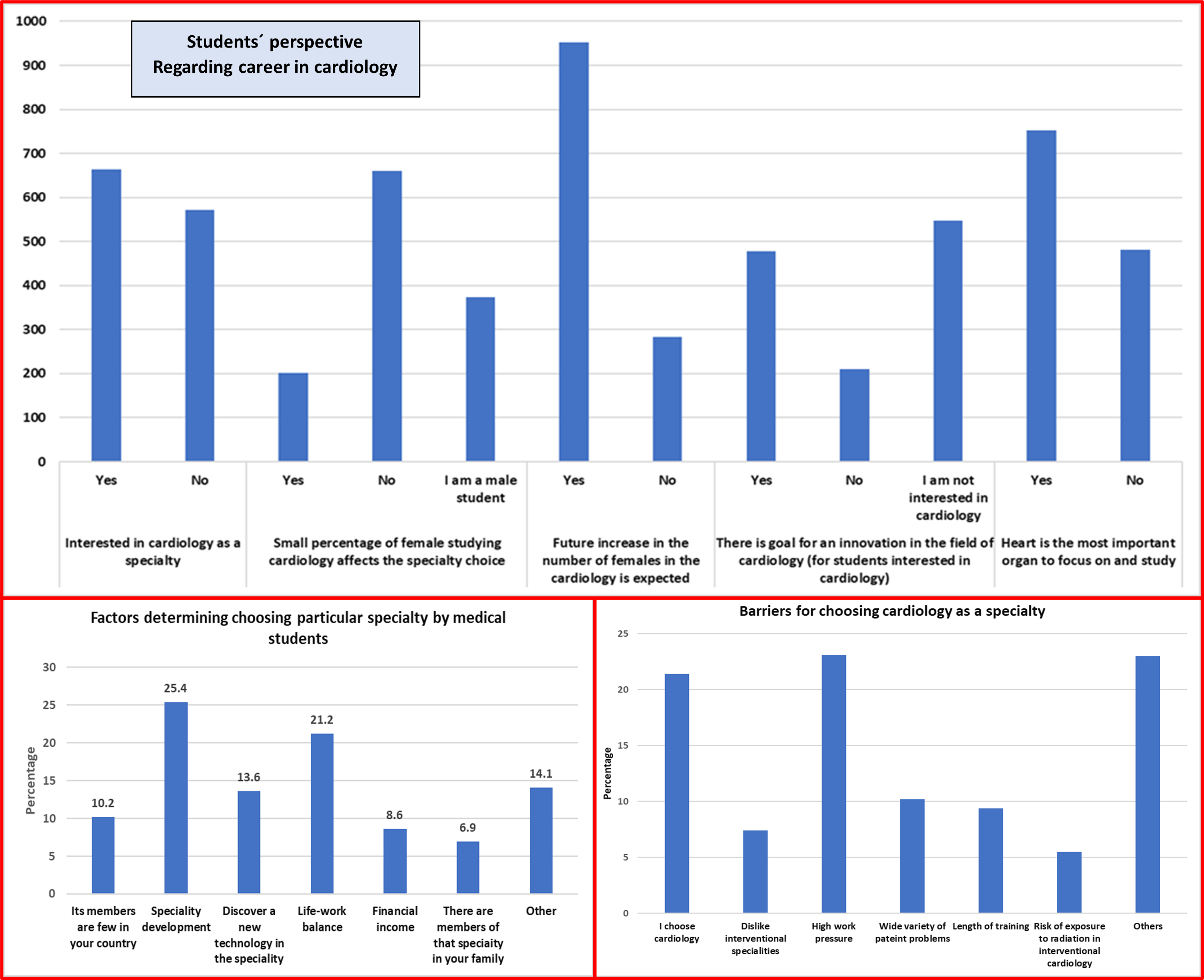Lots of interesting abstracts and cases were submitted for TCTAP 2024. Below are the accepted ones after a thorough review by our official reviewers. Don’t miss the opportunity to expand your knowledge and interact with authors as well as virtual participants by sharing your opinion in the comment section!
TCTAP A-052
Pursuing Cardiology Specialty as a Career: Perspectives From Iraqi Medical Students
By Zahraa Sattar Jassim, Saja AbdulHamza AbdulHassan, Esraa Hwaish Flayyih, Rabab Huwaish Flayyih, Zainab Dakhil
Presenter
Zainab Dakhil
Authors
Zahraa Sattar Jassim1, Saja AbdulHamza AbdulHassan1, Esraa Hwaish Flayyih1, Rabab Huwaish Flayyih1, Zainab Dakhil2
Affiliation
Al-Kindy College of Medicine, Iraq1, Ibn Al-Bitar Hospital, Iraq2
View Study Report
TCTAP A-052
Digital Health and Artificial Intelligence
Pursuing Cardiology Specialty as a Career: Perspectives From Iraqi Medical Students
Zahraa Sattar Jassim1, Saja AbdulHamza AbdulHassan1, Esraa Hwaish Flayyih1, Rabab Huwaish Flayyih1, Zainab Dakhil2
Al-Kindy College of Medicine, Iraq1, Ibn Al-Bitar Hospital, Iraq2
Background
Most medical students begin their medical career unaware of the challenges ahead on choosing certain specialty in the future. There is lack of data from Middle Eastern countries in general and Iraq in particular regarding the factors impacting the career choice of medical students. This study aimed to explore the main factors affecting Iraqi medical students regarding their future career choice and to portrait their insights on career in cardiology.
Methods
This is a cross-sectional survey that was conducted among Iraqi medical students. Data was collected using 27-item google form that was shared through social media.
Results
n=1235 (women in 66.6%). Most common chosen specialties were general surgery in 24.6%, others in 14.6%, followed by cardiology in 10.2%. Most important motives for respondents to choose certain specialty were to develop that specialty in 25.4%, followed by seeking life-work balance in 21.2%. 49.39% of students were aspiring being a university faculty in the chosen specialty. 38.7% of students thought that their gender affects their career choice. Most important barriers withholding students from choosing cardiology were high work pressure in 23.1% followed by others in 23%. 34.97% of respondents reported that their career choice was affected by a family member/friend.


Conclusion
More focus should be offered by decision makers in medical colleges regarding how to mentor and guide medical students to choose their future career path. Further work should be done to explore gender, social and economic insights of medical students and junior doctors regarding the aspired career path in cardiology and trying to navigate any existent barrier.

